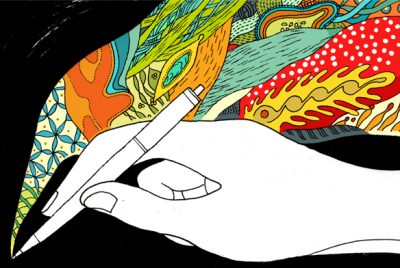By
Ebi Robert
“Human analogy can never explicate the dogma of poesy”
“Emotion recollected in tranquility,” so is poetry defined by William Wordsworth. Poetry is so wide a concept to be summarized with Wordsworth’s few words. “If I feel physically as if the top of my head were taken off, I know that is poetry,” so says Emily Dickinson. Poesy has also been defined as an art form in which human language is used for its aesthetic qualities in addition to, or instead of, its notional and semantic content. But how encompassing are these?
From the wielding of words to the fitting of fixes, figures and an eventual assembling of lines are all but one leathery exploit to describe one word.
One blind eye does not deprive the beggar from being a being. Yet a being can be qualified by “complete.” For poetry, it is but a fruitless quest; because no poem can be cooked with all ingredients of it. They are too many for every single one of them to be remembered and employed. That is if remembrance comes at all. While a human was, poetry is. Thus, the human analogy can never explicate the dogma of poesy.
This way, the pending question keeps recurring: “What is poetry?” Poetry is a relative concept. However to horn on the hypothesis, poetry is a line or lines called a poem. Makes no sense I guess? Perchance a disputer can also say a monometer should never be a poem. If the accurate assertion to the immediate preceding sentence is to the negative, it simply means that a poem may not actually agree with the “must-ingredient-syndrome.” Nevertheless, one verity that might distinguish an ordinary sentence from a poem is “structure.” A poem should not be denied its name for lack of ingredient unless it is a sentence, clause or phrase.
“I love you so bad,
Since you so left me for home,
My son has been fat.”
I guess the write-up looks like a barren message? But there lies in it, 5-7-5, whether or not critiques might name it a corrupted version. Hence, a poem needs no ingredient to be one; a structure can do. I must warn; do not draw the soup-analogy. I have started elsewhere that some analogies are better left alone. They are no good set of ideas for an idea.
“Some analogies are better left alone. They are no good set of ideas for an idea”
WHAT MAKES A POEM?
“Poets are not left alone. They are born with freedom, freedom to breach syntax, freedom to misspell, freedom to tint the touch”
Many poets believe that poetry must comply with every axiom of concord, punctuation touch and spelling. It is good for poems to abide by the rules, but “an all time-must” only murders the premise. Poets are not left alone. They are born with freedom, freedom to breach syntax, freedom to misspell, freedom to tint the touch (mark). Let us consider the stanza below:
“The day was neither short nor long,
Codified in an old glory,
Brighter that sirius’ ong,
There was no legendary story”.
(From the poem ‘An Element of Death’ by Ebi Robert)
“While a critique judges a poem, they should not forget the poet writes with freedom and that nonsense might make a lot sense.”
You can see the “ab ab” prosody. (An Element of Death) Line 3’s “a” is a perfect example of poetic freedom. The “ong” is a corrupted version of “long”. It was perfectly fitted to cure the rhyme. Poetry mostly tints the touch like the address of a letter does. Poetry also breaches syntax on a matter of structure. For instance, the second footing of an Ouvroir de littérature potentielle poetry type is likely to breach the syntax. Because it is only normal that it need not make sense, the Isomorphism exercises most precisely. However, it is advisable breaching the syntax rule while obeying a structure, than doing it for fun. In all, it means that while a critique judges a poem, they should not forget the poet writes with freedom and that nonsense might make a lot sense.
Lead each actor doing edict;
Round some hope in pose-
“And” service edifies right virtues in command earthly
Are good as so disposed
(From the ‘Onus of the Anus’ by Ebi Robert)
Take a look at those lines. What do you see? It might make no sense, but the stanza carries two central themes. Like an acrostic, the first letter of each word in line one and two spells a word, with the conjunction separating the first word from the second which makes up the rest after the conjunction, with the last line not spelling any, which means that the last line in the stanza does not play the fun. By this, the stanza is saying, “Leadership and Service are good as so disposed.” For the analysis, “lead each actor doing edict, round some hope in pose” means leading every individual having his own mind is a matter of hope, because one is not sure how obedient they will be to you. “And service edifies right virtues in command earthly are good as so disposed, means that he who is to serve must know service is a good virtue when executed. Thus, the stanza carries two themes, spells them and gives a meaning. But with a clouded eye, this play may not be seen.
In all, what makes a poem? Nothing but what a poet makes of it. A poem is what a poet calls a poem. For if a poem is a poem because it is a group of lines with ingredients, then a hymn with ingredients is also a poem. Then what is the dividing line between a lyrical poem with “God’s theme” and a hymn; A Poet and a hymn writer? Thus a poem is a poem if a poet calls it one, but that does not qualify it as “good”.
“A poem is a poem if a poet calls it one, but that does not qualify it as “good.”
Ebi Robert
Ebi Robert is from Bayelsa State of Nigeria. He is a poet, essayist and playwright. Born in 1990, he has written many poems. Among them are ”Moon Poetess’, ‘A love mathematics’, ‘Lord of My Love’, ‘Nigerian Girl’ and many more. He has also co-authored books: ‘Emanation, Foray into forever’ edited by Prof Carler Kaplan, ‘Epitaph’ Edited by Kiriti Sengupta & William S Peters, ‘Love a Four Letter’ word edited by Raja Williams, ‘Tribute To Mandela’ edited by Prof Matiu Olawuyi, ‘Epistles of Lies’ edited by Agarau Adeyemi and Iruesiri Samson, etc. His proven poetic prowess is evident in some of his uncommon write ups, which earned his ‘Pantoum’ a place in the current issue of Asian Signature, a literary journal. Other mediums that have featured his works are, poetic diveristy, the Union Newpaper, to mention a few. He is currently studying Law in the Niger Delta University of Nigeria.



No Comments Yet!
You can be first to comment this post!